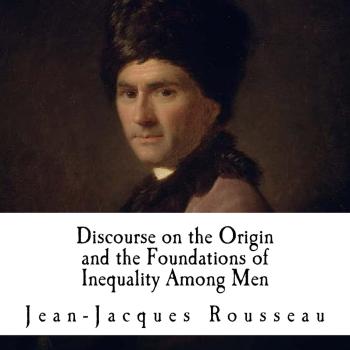Lectionary Reflections
"Song of Solomon" 2:8-13
August 30, 2015
14th Sunday After Pentecost
I hope you noted that I have placed "Song of Solomon" in quotation marks, because that is plainly not the title of this book of the Bible. It is not that title in Hebrew, Greek, or Latin, which makes it certain that the author (or authors) had something else in mind. It is of course quite true that the very first verse of the book reads, "Song of Songs which is Solomon's," thus implying that the third king of Israel wrote the thing. That is completely and thoroughly impossible, since the Hebrew text is infused with numerous very late Hebrew grammatical structures, not to mention the multiple use of foreign words. It is beyond doubt a late book in the canon, though exactly how late is impossible to discern.
The more exact way to translate the title is either the simple "Song of Songs," or the equally possible "the most beautiful song," since the Hebrew structure is one way that the superlative is expressed in the language. I prefer the latter, though it is certainly the least known option. Still, after reading the series of poems that comprises the book, it is, most would agree, a "most beautiful song" indeed.
But, of course, the most important questions to raise are: "what is the thing about," and "what is it doing in our Bible anyway?" If I am to preach from it, just what am I to say? Let us begin by saying what the book is obviously not about.
First, it is not an allegory, using the loving man and woman in the poems as representatives of the relationships between YHWH and Israel. That suggestion was made early on by some rabbis who were apparently scandalized by what they were reading in these poems. I am not completely surprised by this counsel of despair, this attempt to "clean up" what some found as "dirty." After reading chapter five, a poem that literally drips with erotic pleasure, where the beloved "opens to the beloved, hands dripping with myrrh, with liquid myrrh," the beloved having "thrust his hand into the opening," one could easily see just how a more prudish religiously pious reader might blush in horror first and then run headlong to allegory to solve his prudish dilemma. Sorry! This will not do; the poems are erotic, and they celebrate with great glee and aplomb the sensuous love between a man and a woman, both unnamed.
Second, neither is the thing an allegory about Christ and his church (!), though more than a few early church fathers, desperate to find ways to avoid what their own eyes were reading, like their fellow Jewish prudes, selected the allegory to cover over the truths of a rich and ripe eroticism with a veil of foolishness. Reading their attempts to play this game make for hilarious and ludicrous prose. I can imagine them in their monkish celibacy, charged with the task of making pious sense of these poems, twisting and blushing in their cells, reaching out in vain for ways to "save" the book for a pre-ordained reverence, rushing all too eagerly to the following book, the prophet Isaiah, hoping that no one will read the saucy book for themselves! Of course, they were fortunate in the early centuries that few of their flock could in fact read or write. Hence, they could get away with their pious claptrap without reproof for many centuries.
Third, it is not a manual for the marriage bed. If it is indeed erotic, and oh indeed it is, then it is only reserved for those who are legally hitched in the sight of God. To be sure, at Song of Songs 3:6-11, we are presented with a vision of King Solomon appearing in the wilderness like "a column of smoke" (S. of S. 3:6), seated on a palanquin, surrounded by sixty mighty men, and crowned with the crown "with which his mother (Bathsheba!) crowned him on the day of his wedding, on the day of the gladness of his heart" (S. of S. 3:11). But note that this picture merely describes Solomon as on the day of his wedding, and says nothing at all about this day being that day. The portrait of the resplendent king, gently rocking on his litter, born by strong men, simply adds to the odor of perfume that permeates this entire book. It is decidedly not a celebration of marriage.
Well then, what is it? It is a bawdy and seductive paean to physical love, and once one can see that, the rich poetry may be seen finally as the wonderfully sexy and downright titillating writing that it is. The lectionary selection is merely the introduction, the starting point, of the wild and reckless search of the man for the woman and the woman for the man, a search that ends up in bed and the deeply satisfying coupling that results. Why is that so hard to observe and why is it even harder to accept?
No better illustration of the confusion concerning sexuality in the church and in the society can be discerned than this refusal to read "the most beautiful song" for what it is. It is not only that the Roman Catholics continue to suggest that there is finally something quite wrong with conjugal love, since they deny their priests its wonders (forcing too many of them to discover its joys in monstrous ways). It is not only that sexual love is seldom if ever mentioned in a Protestant church, save to warn against its dangers and to celebrate the hierarchical power of men over women in the act of sex (hence the ridiculous "humor" about the "missionary position"). Indeed, sex talk in the church has done little to help men and women (and men and men and women and women) move beyond the abuses of power that sex has for so long represented.





